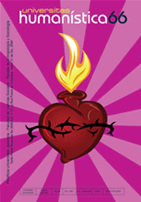Abstract
This article tries to capture the relationship between the economic activities of the indigenous peoples in the central zone of the Caquetá River (Uitotos, Muinanes, Andokes, Nonuyas) and the means of production of the FARC guerilla. These relations took place in times of the geopolitical juncture stemming from the breakup of the peace dialogues between the Pastrana government and the FARC in 2002. Using descriptive means, the article discovers the political importance for local indigenous life that was created by “working” in midst of the guerilla presence and the following attack by the Colombian army. Finally, the article points out that the economic encounters between insurgency and local residents were mediated not only by the distinct ways of conducting social life, but also by a series of interests, desires and different subjectivities that, in the framework of the armed conflict, reaffirm the condition of local residents as culturally differentiated subjects.

This journal provides immediate open access to its content on the principle that making research freely available to the public, encourages greater global exchange of knowledge.
The journal Universitas Humanística is registered under a Creative Commons Attribution 4.0 International Public License. Thus, this work may be reproduced, distributed, and publicly shared in digital format, as long as the names of the authors and Pontificia Universidad Javeriana are acknowledged. Others are allowed to quote, adapt, transform, auto-archive, republish, and create based on this material, for any purpose (even commercial ones), provided the authorship is duly acknowledged, a link to the original work is provided, and it is specified if changes have been made. Pontificia Universidad Javeriana does not hold the rights of published works and the authors are solely responsible for the contents of their works; they keep the moral, intellectual, privacy, and publicity rights.
Approving the intervention of the work (review, copy-editing, translation, layout) and the following outreach, are granted through an use license and not through an assignment of rights. This means the journal and Pontificia Universidad Javeriana cannot be held responsible for any ethical malpractice by the authors. As a consequence of the protection granted by the use license, the journal is not required to publish recantations or modify information already published, unless the errata stems from the editorial management process. Publishing contents in this journal does not generate royalties for contributors.


